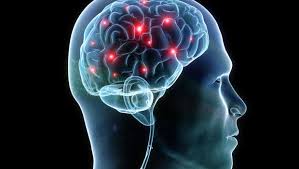“Right now,” said Steven Wright, “I’m having amnesia and deja vu at the same time. I think I’ve forgotten this before.” And while it’s true that youngsters do forget names, math facts, and when Dad said to be home, many folks 50 and older notice that their recall (what year did we go to California?) isn’t what it used to be.
When you have such a senior moment, it’s just a stutter in what’s called episodic memory, and rarely is it long-lasting. But if you’re concerned about your recall, talk to your doc about stress, sleep problems, depression, thyroid disease, diabetes, vitamin B-12 deficiency, excess alcohol use, infections, and your medications. They’re all possible memory-busters. And try our unforgettable, brain-boosting tips!
- Walk fast for at least 30 minutes daily, heading for 10,000 steps a day. Any exercise, but especially aerobics that make you sweat, is the very best memory enhancer.
- Cut body-wide inflammation with omega-3 DHA from salmon or ocean trout; and take 900 mg of DHA from algal oil daily. Add in more omega-3s: walnuts, canola, and extra-virgin olive oil.
- Try the spice turmeric to reduce triglyceride levels, increase fat burning, and keep blood sugar steady. Dr. Mike carries packets of yellow mustard, full of turmeric, to add to snacks and meals.
- Take two baby aspirins daily (if your doc approves) with a half-glass of water before and after.
- Get romantic. The neurotransmitter dopamine helps control information flow and memory. Levels decrease with age, but zoom up with sexual activity.
If you’ve hit mid-life, you’ve probably noticed signs of aging — wrinkles, thinning hair, and maybe a few extra pounds around your hips or belly.
And while that creeping middle-aged weight gain may not be desirable . . .There’s one area of your body you should keep as plump and fat as possible — and that’s your brain. You see, your brain shrinks by about 5% per decade after you hit age 40. Maybe that doesn’t sound like much to you, but listen . . Your brain contains about 86 billion nerve cells called neurons.
Each piece of your brain the size of a speck of sand contains 100,000 neurons all trying to talk to each other through 1 billion connecting points called synapses.
This allows over 100,000 chemical reactions to occur in your brain every second. Crucial chemicals called neurotransmitters move across connection points and release their contents into gaps between these synapses.
And all these connections going on inside your brain are what allow you to create and retain memories, form ideas and thoughts, experience emotions, and even express your unique personality.
Why You Want a Fat Brain
Your brain only weighs about 3 pounds. Yet about 60% of your brain is fat. This makes your brain the fattest organ you have. And this fat is essential for your brain to function. For one thing, your brain requires fat for energy. Although your brain makes up only about 2% of your body weight, it uses a whopping 20% of the energy your body produces just to function normally.
Fat is necessary to create brain cell membranes and produce neurotransmitters. Plus, it serves as the raw material to make hormones.
And fat makes up about 60% to 80% of the myelin sheath, a protective covering around nerve axons. These axons represent the primary transmission lines of your nervous system.
As you can see, the fat in your brain serves many vital functions.
Shrinkage Matters to Your Memory — Especially if You’re a Woman
Two areas of your brain especially prone to age-related shrinkage are the hippocampus and the prefrontal cortex. These are important parts of the brain when it comes to memory, learning, and other complex mental activities.
With aging, neurons themselves shrink in number and volume. The connections between nerve cells deteriorate and become less extensive. The level of neurotransmitters declines.
And a shrinking brain is only one of the changes your brain faces as the years pass. With aging, the brain undergoes a gradual reduction in blood flow. Aging speeds up an imbalanced process of inflammation in the brain (as well as the entire body). Free radicals in the brain and body accumulate at a faster rate with age. Free radicals are highly reactive molecules that can damage neurons and other cells throughout the body.
Scientists have found that women suffer more age-related shrinkage in areas of the brain related to memory than men do. And while men are not exempt from those frustrating “senior moments,” their brain shrinkage tends to cause more changes in areas related to thinking and feeling.
So what does all this mean?
Well, by the time you hit mid-life, when it comes to brain health, you’re no longer on the offense.
After 40, You Need to Play a
You may have noticed that you tend to forget where you put things — like your car keys. Or your phone. Or your glasses, even when they’re sitting on top of your head. Or you might forget appointments or names of people you’ve just met.
You might have more difficulty concentrating or focusing on tasks than you used to. Or perhaps you have a foggy brain feeling that keeps you from thinking clearly. You see, aging is the single greatest risk factor for developing memory concerns.
And over 60% of people middle-aged and older suffer some degree of memory impairment. In fact, according to the National Institute on Aging, memory problems are one of the first warning signs of cognitive loss, which involves mental slowing and declining intellect.
Fortunately, while you can’t stop the inevitable march of time . . .You can take some simple steps to combat brain shrinkage and other signs of aging that could impact your memory — and your quality of life.
Dr. Mehmet Oz and Dr. Mike Roizen, Newsmax Health


